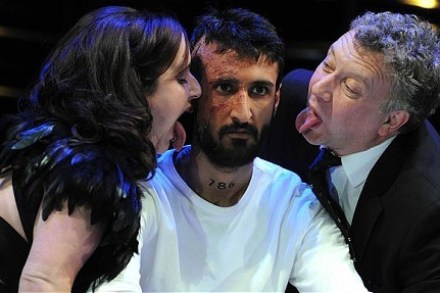Misplaced outrage
I think my favourite story of the day concerned the theatre-goers at Stratford-upon-Avon who were outraged that the play they had just seen contained considerable amounts of sex, violence and depravity. The play was Marat/Sade. You’d think the “Sade” bit might have given them a bit of a clue, wouldn’t you? It’s a bit like














